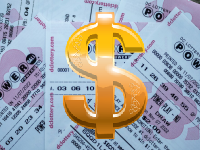John Cheeks Sues Powerball: The Battle for Unclaimed Millions

John Cheeks’ Hope Dashed
Everyone daydreams of winning the lottery and all the things they would do when they are proclaimed winners. Well, in the world of lottery dreams, John Cheeks was no different from millions of hopeful players. He clutched his Powerball ticket, eyes wide with anticipation, as he checked the winning numbers. The digits on his ticket matched those displayed on the D.C. Lottery’s website. His heart raced; he believed he had won the $340 million jackpot. But fate had other plans.
On January 7, 2023, John Cheeks, a Washington DC resident, saw his chosen numbers—7, 15, 23, 32, and 40—mirrored on the lottery website. The yellow Powerball number was a perfect match. Cheeks was elated. He envisioned paying off debts, securing his family’s future, and perhaps even fulfilling a lifelong dream.
Buy one Powerball ticket and get one for free 🎁
However, when Cheeks presented his ticket to the Office of Lottery and Gaming (OLG), his euphoria turned to disbelief. The OLG denied his claim, leaving him stunned. One of the claims agents coldly advised him to toss the ticket in the trash. But Cheeks clung to hope. He sought legal counsel, determined to fight for what he believed was rightfully his.

John Cheeks’ Legal Battle: Fighting Powerball
The courtroom drama unfolded around a seemingly innocuous technical glitch. According to court documents, on January 6, 2023, a quality assurance team at the D.C.-based Taoti Enterprises was testing the lottery website. On that fateful day, a set of test Powerball numbers—coincidentally matching Cheeks’—was accidentally posted online. Those numbers remained visible for three days until January 9. Unfortunately for Cheeks, they didn’t align with the winning numbers drawn during the last lottery event.
John Cheeks filed a lawsuit against Powerball and the DC Lottery on eight counts, including breach of contract, negligence, infliction of emotional distress, and fraud. His lawyer, Richard Evans, argued that because the winning numbers matched Cheeks’ ticket, he was entitled to the
“entire jackpot.”
If not, Cheeks deserved damages for the
“gross negligence”
of the lottery in posting erroneous numbers.
Evans emphasized that this case wasn’t merely about numbers on a website. It was a battle for the integrity and accountability of institutions promising life-changing opportunities. Powerball and the DC Lottery profited from players’ dreams, yet their safeguards failed. Cheeks’ lawsuit questioned the reliability of lottery operations and the consequences of their errors.
The irony wasn’t lost on anyone. The odds of winning the Powerball jackpot were one in 292.2 million—a cosmic rarity. In contrast, the chances of being struck by lightning within a year stood at 1 in 1.22 million. Cheeks, like all players, had defied astronomical odds, only to face a different kind of lightning strike—the shock of denial.
Conclusion: John Cheeks’ Pursuit of Justice
As the legal battle rages on, John Cheeks remains hopeful. He believes in justice, even when the odds seem insurmountable. The jackpot would have transformed his life, but now he fights for more than money. Cheeks plans to establish a home trust bank if he prevails, helping aspiring homeowners achieve their dreams.
The tale of John Cheeks reminds us that sometimes, life’s twists are stranger than fiction. In the grand theater of chance, where numbers dance and dreams collide, one man’s pursuit of justice echoes louder than any jackpot. As the next hearing approaches, the question lingers: Can hope prevail against the odds? Only time—and the courts—will tell.
You May Like: